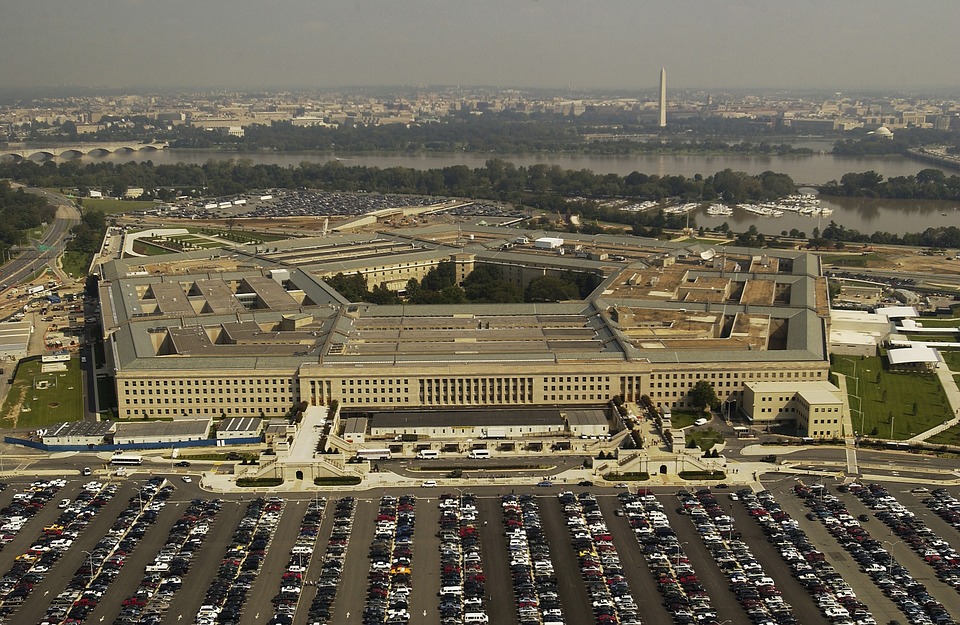
It's a pledge that could ease some of the concerns tech workers at Silicon Valley companies have raised about building powerful AI tools for warfare.
As the Pentagon on Tuesday laid out its first AI strategy to counter a surge of investment in the technology by China and Russia, it promised to work with industry leaders to "advance AI ethics and safety in the military context." The Pentagon also promised to "articulate its vision and guiding principles for using AI in a lawful and ethical manner to promote our values."
The decision to make this a core part of its strategy indicates the Pentagon has taken notice of the warnings that top technologists like Elon Musk have made for years about the dangers of building AI weapons that humans can't fully control -- and Google's high-profile decision to pull out of a drone software contract with the military last year after employees raised ethical concerns.
Researchers concerned about the threat of AI weapons are welcoming the commitment - but with caution.
"It's encouraging that the Pentagon's says it will articulate its vision for using AI ethically and safely, but the crux is what they'll actually articulate," said Max Tegmark, a Massachusetts Institute of Technology professor and president of the Future of Life Institute, which conducts AI safety research.
"If they come out and say, 'We'll never build lethal autonomous weapons without meaningful human control,' they'll have an easier time recruiting top U.S. AI researchers than if they merely say 'that's classified.'"
The Pentagon is under pressure to be more transparent as it increasingly courts top AI researchers in the technology industry and academic community. The Google decision put a fine point on the broad gulf between the military and Silicon Valley - and it's become a matter of national security for the Pentagon to bridge that divide. Experts warn a 21st century "arms race" against China to lead the world in AI is underway, and the government will need cooperation from top private sector talent to maintain its competitive edge.
"China has a clear and open strategy to be the world leader in AI," said Peter W. Singer, a strategist at the New America think tank. "They also are creating and enforcing the kind of corporate partnerships between business and government that frankly aren't possible here." China exerts more influence over how much top technology companies like Baidu or Huawei cooperate with the government on its AI strategy than the U.S. does over businesses like Google.
The Pentagon's strategy indicates that the Defense Department plans to do more to foster a better relationship with the tech industry. The Pentagon will focus on enhancing its partnerships with industry, seeking "bold new AI initiatives with large industrial partners, small start-ups, and venture capital firms," the report said. The Pentagon also said it would remove crucial administrative hurdles to make it easier for industry to engage with the military.
Engaging with Silicon Valley on ethics and safety could be key to the success of any new AI initiatives. In its strategy, the Pentagon committed to invest in AI systems that minimize bias -a key concern industry is also grappling with as it invests heavily in the technology. And the Defense Innovation Board, the Pentagon's key liaison to the technology industry, previously said it would develop AI ethics recommendations for the Defense Department this year.
The Pentagon released its strategy just a day after President Donald Trump signed an executive order that aims to accelerate U.S. leadership in developing AI, largely through prioritizing AI research and development within the government. China has a had coordinated national strategy on AI for years, and the executive order and the Pentagon's strategy appear to be the U.S. response.
The Pentagon won't be the only agency that has to consider ethical questions as the Trump administration calls for all government agencies to prioritize AI. Given the high-stakes risks involved in how AI should be used by the military, the Pentagon may be forced to stay "a step ahead of the game" and engage in critical discussions about ethics with the tech industry early, said Jennifer Pahlka, the executive director of the nonprofit Code for America, which aims to bring digital services to government. She wants to see more open dialogue between the government and the technology industry about the tough questions that arise as AI is increasingly adopted.
"It's critical to the future of the country that folks with very different perspectives talk more openly," she told me.
Every weekday JewishWorldReview.com publishes what many in the media and Washington consider "must-reading". Sign up for the daily JWR update. It's free. Just click here.
(COMMENT, BELOW)


 Contact The Editor
Contact The Editor
 Articles By This Author
Articles By This Author